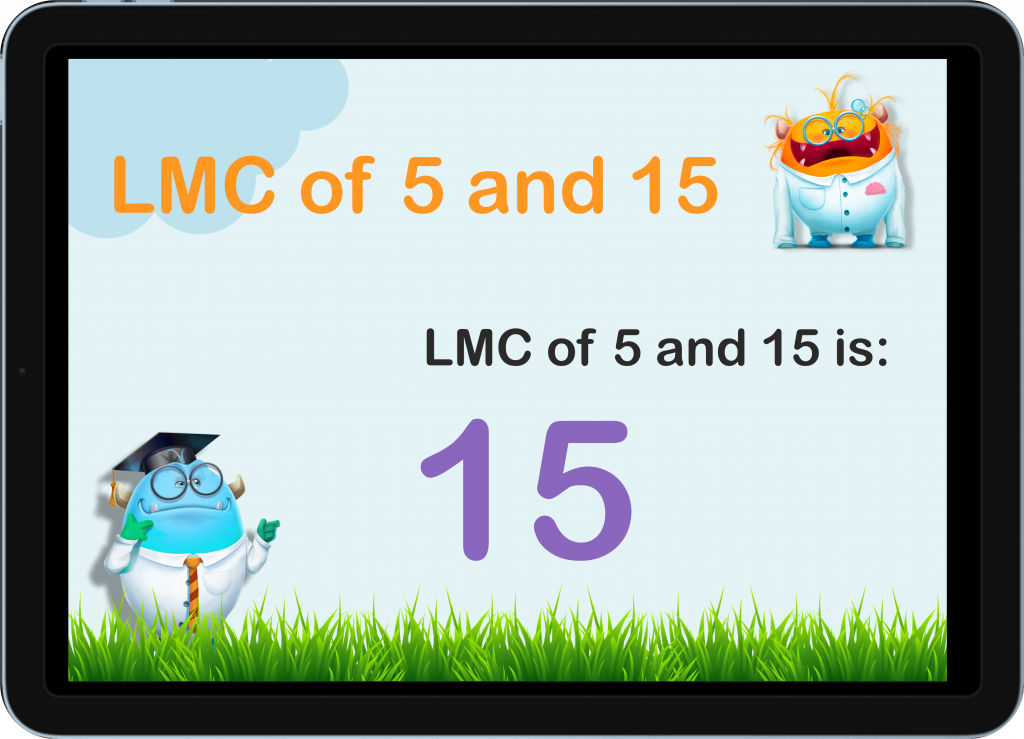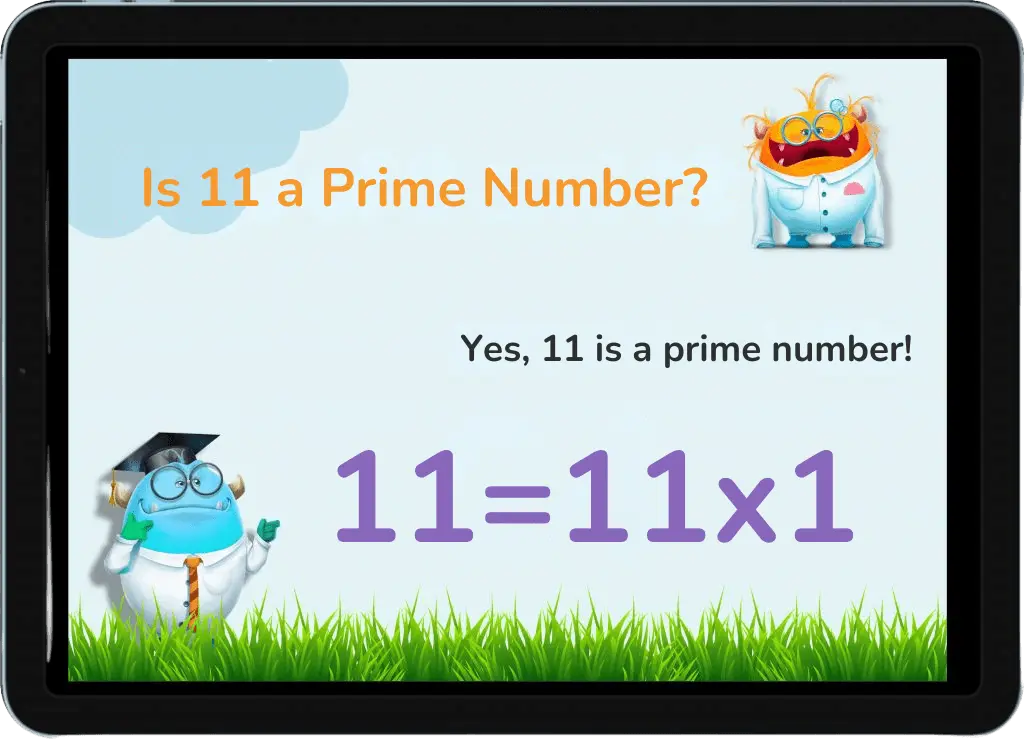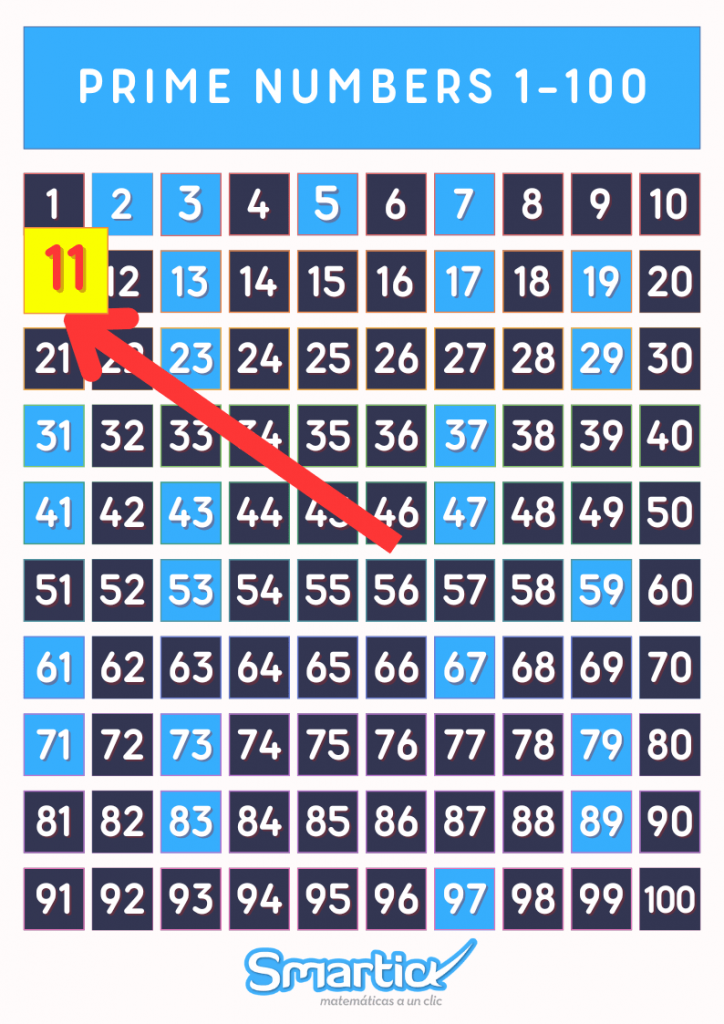Is 2 A Prime Number?
Prime vs. Composite Numbers
Greetings, young math enthusiasts! Today, let’s set sail on a mathematical voyage to determine if 2 is a prime number, and learn more about the difference between prime and composite numbers.

Is 11 a Prime Number?
Or is 11 a Composite Number?
You’re wondering whether 11 is a prime number? We wondered as well and decided to let you in on a secret! We’ll dive into the intriguing world of prime and composite numbers, and learn how 11 fits the equation. Pun intended. 1,2,3, go!


No credit card required

No credit card required
What Makes a Number Prime?
Is 11 a Prime Number?
Prime Factorization and Related Concepts
The Special Traits of Number 11
Is 11 a Composite Number?
Hello there, math explorers! Did you know that 11 is a palindromic number, meaning it reads the same backward as forward? Today, we’re going to uncover the mystery of whether 11 is a prime number. Grab your curiosity hats, and let’s dive into this numerical adventure together!
What Makes a Number Prime?
Let’s take a moment to understand what a prime number is. A prime number is a natural number greater than 1 that has exactly two distinct positive divisors: 1 and itself. This means a prime number can only be divided without a remainder by 1 and the number itself. Some examples of prime numbers include 2, 3, 5, 7, 11, and 19.
Now that we’ve got the definition down, let’s discover what makes the number 11 so intriguing!
Is 11 a Prime Number?

Alright, let’s examine 11 to determine if it’s a prime number. To find out, we need to check if 11 can be divided evenly by any numbers other than 1 and 11. Here’s the step-by-step:
- Is 11 greater than 1? Absolutely!
- Can 11 be divided evenly by any numbers between 1 and 11? Nope, only by 1 and 11.
So, 11 passes the test! It can only be divided by 1 and 11, making it a prime number. High ten to that!
Prime Factorization and Related Concepts
Prime factorization gives a number its unique identity. For the number 11, the prime factorization is simple:
Prime factorization of 11: 11
Since 11 is a prime number, it cannot be broken down into other prime factors. It’s a unique and special number, standing alone as its own prime factor.
The Special Traits of Number 11
Now, let’s delve into some of the fascinating traits of the number 11 that make it stand out.
Mathematical Characteristics
Prime Palindrome: Did you know that 11 is a palindromic prime? It reads the same backward as forward, making it unique and easy to remember.
Repunit Prime: The number 11 is also a repunit prime, which means it consists entirely of the digit 1 in its numeral representation. Pretty neat, huh?
11 Has a Twin Prime: Yes and it’s number 13. Remember, twin prime numbers are those numbers residing close to one another and are separated by two.
11 in Nature and Culture
Eleven Petals: Some flowers, like the black-eyed Susan, have 11 petals, showcasing nature’s preference for this prime number.
Cultural Significance: In many cultures, 11 is seen as a master number in numerology, symbolizing intuition, insight, and enlightenment. This makes it a number often associated with spiritual growth.
Soccer Teams: A standard soccer team has 11 players on the field. This highlights the number’s role in bringing balance and coordination to one of the world’s most popular sports.
Uses of Prime Number 11
Music and Rhythm: In music, the number 11 can be found in time signatures, creating complex and interesting rhythms. This adds a layer of creativity to musical compositions.
Prime Patterns and Games: The number 11 appears in various mathematical patterns and games. For example, in the game of craps, rolling an 11 is known as a “yo-leven” and is considered a winning roll on the first throw. Fun and lucky!
Comparing 11 with Other Prime Numbers
Let’s compare 11 with some of its prime number friends, like 7 and 13. These numbers share common traits—they can only be divided by 1 and themselves—but each has its own unique place in the sequence of prime numbers.
For example, 7 is the fourth prime number, 11 is the fifth, and 13 is the sixth. This sequence helps mathematicians understand the distribution of prime numbers and their properties.
Is 11 a Composite Number?
Now, let’s address another important question: Is 11 a composite number? The answer is no. A composite number has more than two divisors, meaning it can be divided evenly by numbers other than just 1 and itself. For example, 12 is a composite number because it can be divided by 1, 2, 3, 4, 6, and 12.
However, 11 can only be divided by 1 and 11, making it a prime number, not a composite number. So, it firmly stays in the prime category!
Let’s Conclude Things
Fantastic job, math explorers! You’ve navigated through the intriguing world of prime numbers and discovered why 11 is a prime number. Remember, a prime number is a natural number greater than 1 with exactly two factors: 1 and itself.
Keep exploring and uncovering more mathematical wonders. Who knows, maybe the next prime number you dive into will be just as fascinating as 11!
Learn More About Prime Numbers
© 2024 Smartick. All Rights Reserved.
